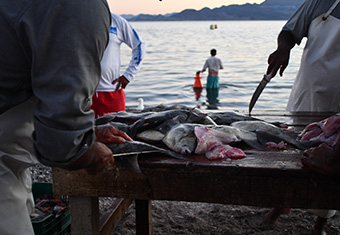

Abstract
Achieving sustainable and equitable fisheries management in an increasingly industrialized ocean is a pervasive challenge for conservation. A major threat to the ecological and social well-being of coastal communities around the world is competition with large, industrial fishing fleets on areas used by small-scale artisanal fisheries (SSFs) This competition between large- and small-scale fisheries is expected to increase in coming decades as species move in response to climate change, particularly in fishing-dependent communities and in low-income countries. However, the impacts of large-scale fishing in coastal areas are not well-understood. I propose to quantify and project the ecological and food security tradeoffs associated with large-scale fishing in coastal countries, and to identify priority regions and policy pathways that consider both ecological stability and food security for coastal communities as primary objectives. First, I will work with Global Fishing Watch and the Illuminating Hidden Harvests Project to quantify the intensity of large-small fishing in 52 countries which have active and important small-scale fisheries. Next, I will model the effect of industrial fishing on ecological and socioeconomic tradeoffs for these countries, and project this model under climate change scenarios to predict how these tradeoffs will look in the future. Finally, I will conduct comparative case studies to identify policies and governance structures associated with different levels of industrial fishing, and to identify policy pathways forward for effective fisheries management for sustainable natural systems and equitable coastal communities.
website: www.melcronin.com
twitter: @melissa_cronin
